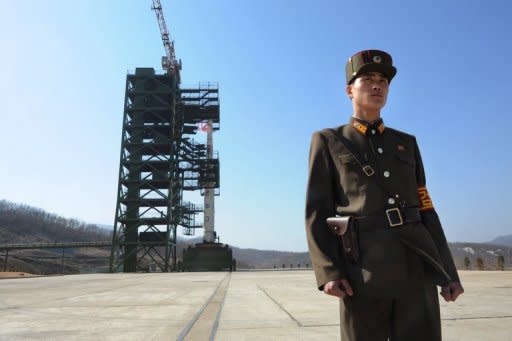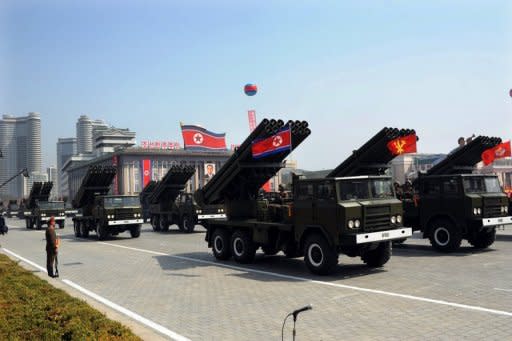New N. Korea sanctions sets stage for nuclear showdown
The UN Security Council on Wednesday put three top North Korean state firms on a sanctions black list over the country's failed rocket launch. But the assets freeze against three enterprises said to have financed and organized the North's missile and nuclear programs could soon be followed by a new UN sanctions battle if the North carries out a feared nuclear bomb test. The United States, European Union, South Korea and Japan had proposed adding 40 companies, organizations and individuals to the UN sanctions list. But China, the North's closest ally, rejected the bulk of the names, diplomats said. US ambassador Susan Rice said the sanctions targeted "three very significant North Korean entities, very much involved in their illicit missile and nuclear programs." The three sanctioned firms are Amroggang Development Banking Corporation, which already faces US and European Union sanctions, Green Pine Associated Corporation, and Korea Heungjin Trading Company. Amroggang is related to another bank, Tanchon, which plays a "key role" in North Korea's sales of ballistic missiles, including to Iran, said a sanctions committee statement. Green Pine was said to be North Korea's "prime" arms dealer, responsible for about half of the country's arms exports. The statement added that Korea Heungjin was also suspected of trading in weapons with Iran and importing goods for missile designs. "We view this as a strong and credible set of sanctions," Rice told reporters. China's UN ambassador Li Baodong also said he was "happy" that an agreement had been reached on the sanctions list. North Korea fired the rocket on April 13, but it disintegrated soon after launch and fell into the Yellow Sea. Global condemnation followed, however, and the Security Council ordered the expansion of sanctions imposed after the isolated state's nuclear bomb tests in 2006 and 2009. The Security Council is now braced for more difficult talks if North Korea stages a third bomb test. China would again be expected to protect its neighbor against international pressure for major sanctions, diplomats said. North Korea has apparently finished preparations for a third test at its underground site at Punggye-ri, in the northeast of the country, and is awaiting a political decision to go ahead, according to South Korean nuclear experts. Rice said the new sanctions will "increase North Korea's isolation" and showed the Security Council "is determined that there be consequences for this provocation and any future North Korean violation." "We should not judge anything now," the Chinese ambassador told reporters when asked how the Security Council should react to an atomic test. But US and European diplomats have indicated that they will seek sanctions if a new atomic blast is carried out. Western nations have already started discussing potential action, but not yet with China and Russia, diplomats said. "China will never discuss action before the event. We will have to see how they react to any test. Sanctions would be the normal reaction, but it will be hard," one western envoy said. Following the rocket launch, the 15-nation council gave its North Korean sanctions committee two weeks to propose new names and entities to add to the list of eight firms and five individuals already facing an assets freeze and travel ban. The council also ordered an updated list of technology and substances that are banned for North Korea. The lists are prepared by the Missile Technology Control Regime and by the Nuclear Suppliers Group, the main nuclear equipment exporting countries.





